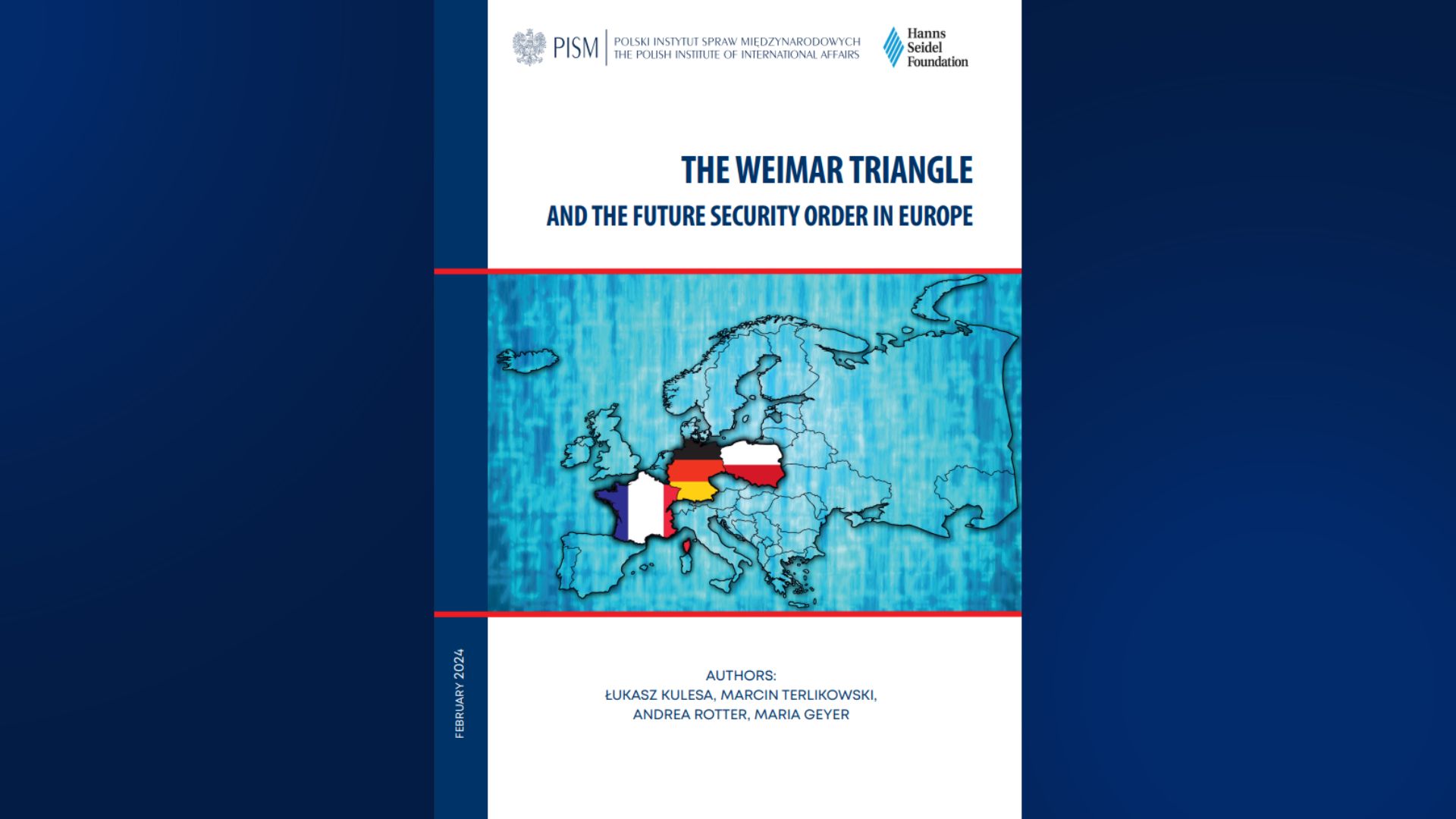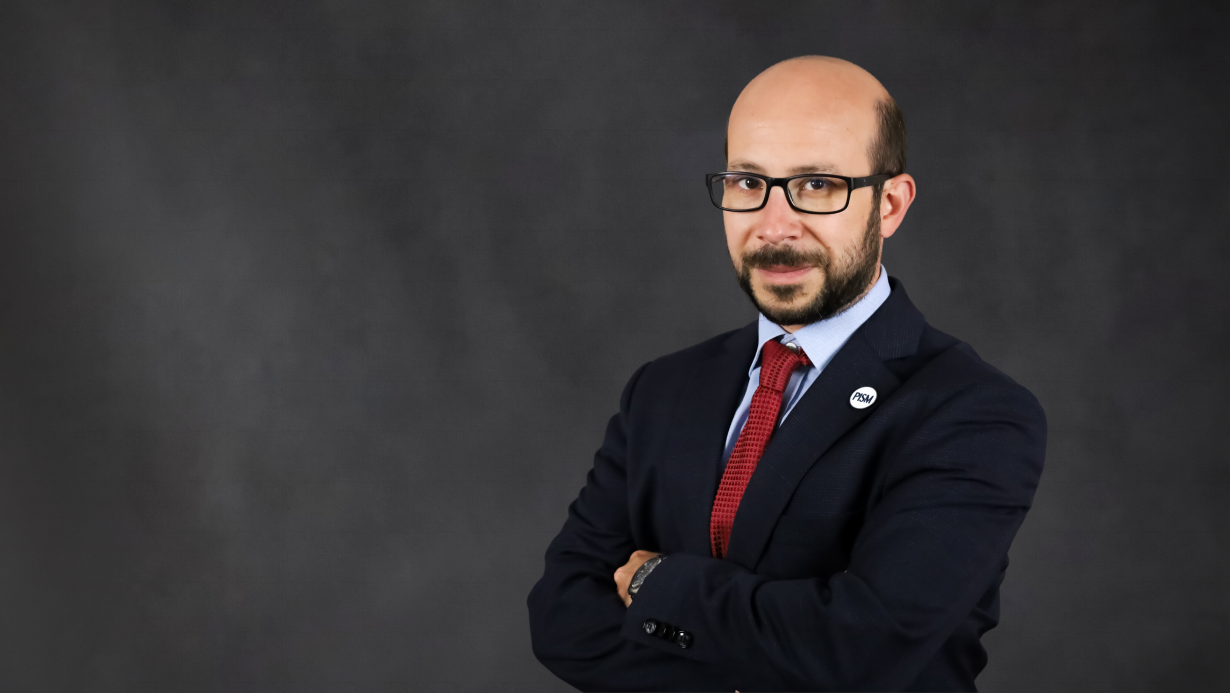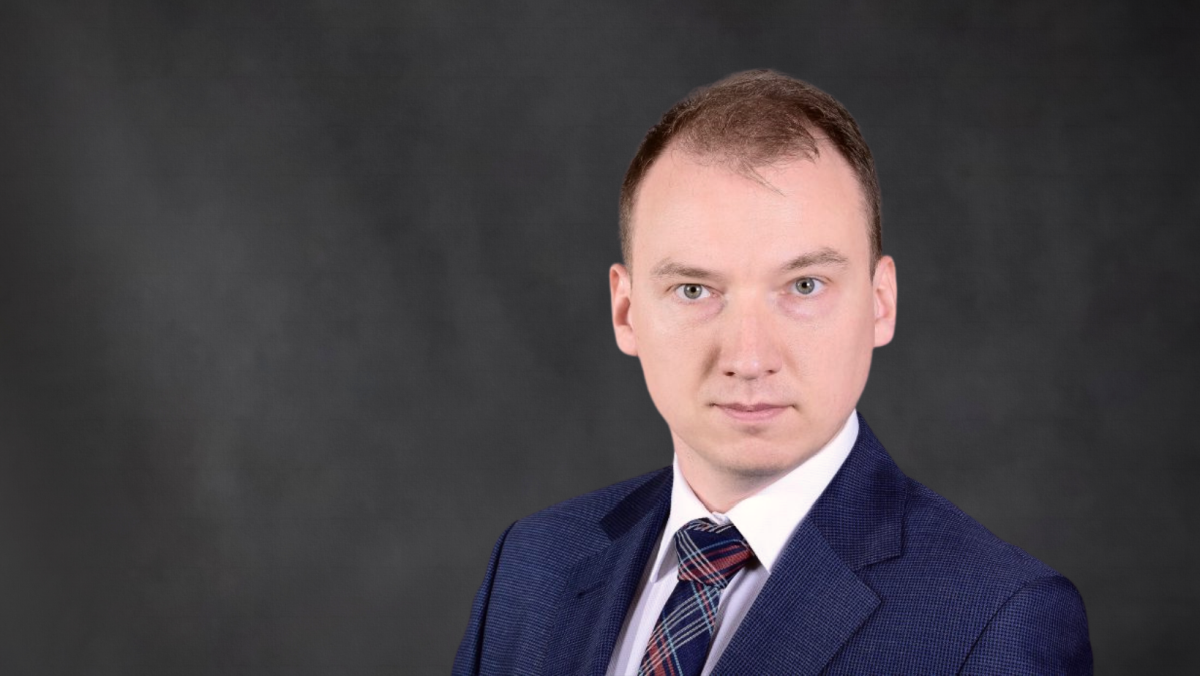The Weimar Triangle and The Future Security Order in Europe
This report is based on a workshop organised by the Hanns Seidel Foundation (HSF) and the Polish Institute of International Affairs (PISM), with participation of experts from the Weimar Triangle states—France, Germany, and Poland. They gathered in Warsaw in November 2023 and were confronted with two different scenarios related to the future of European security: a regime change in Russia followed by an offer of a “reset” with the West and a Ukrainian plea for Weimar security guarantees while the war continues. The seminar proven that it is possible to develop a joint Weimar position, while respecting interests, preferences and “red lines” of each of the three countries. The report presents conclusions and offers recommendations on Weimar Triangle policy towards Ukraine and Russia, derived from the proceedings of the workshop.

The course of the Russian invasion of Ukraine and the anxiety regarding the future role of the United States in European security, makes it an imperative for European nations, especially France, Germany, and Poland, to find consensus and cooperate to strengthen European security. Consequently, there is now new space for “Weimar” to play a more active role, acting according to the principle of equality among the three Weimar states.
On the question of Ukraine and its future role in European security, there was a strong and persistent consensus at the expert level on the need and special responsibility of the Weimar countries to increase their military support for Ukraine. Stand-alone security guarantees (understood as obligations similar to NATO’s Article 5) for Kyiv from the Weimar Triangle are not seen as realistic and would not be credible. The Weimar Triangle could nevertheless take various steps:
- enhance the levels of support for Ukraine, including by increasing domestic defence industrial capacities and pushing such efforts at the EU level with urgency;
- formulate a joint Weimar Triangle approach to affecting the course of Ukraine’s war against Russian invasion over the next 12 months, based on shared assessment of the situation;
- announce a Weimar Assistance Package that addresses Ukraine’s military needs, including options such as expanding training for Ukrainian troops (also in Ukraine), the “pooling” of existing national plans for arms, equipment and ammunition supplies, and potentially joint production and deliveries of weapons at a later stage;
- establish a Consultation Mechanism with Ukraine, open to other interested European states, to examine and prepare for contingencies and worst-case scenarios such as Ukraine’s military setbacks or withdrawal of U.S. support;
- improve strategic communications as regards the stakes of the conflict and the Russian goals regarding both Ukraine and European security order;
- explore the short- and long-term implications of Ukraine’s accession talks and eventual EU membership for the Common Security and Defence Policy;
- work together to bring Ukraine closer to NATO membership at the Alliance’s next summit in Washington, D.C.
As for the Weimar Three’s future approach to Russia, the workshop identified broad commonalities that could serve as the basis for a joint approach by the Weimar Triangle towards Russia. Consequently, the Weimar Triangle could consider the following measures:
- strengthen deterrence against Russia and bolster NATO’s defence posture by fully implementing the decisions taken at the NATO Summits in Madrid in 2022 and Vilnius in 2023. The Weimar Three could consider additional military deployments along the Eastern Flank, while supporting adequate NATO-Russia military risk-reduction mechanisms;
- agree on and present to allies and partners a Weimar vision for a set of guiding principles for a long-term Western strategy towards Russia;
- develop a common Weimar approach to preconditions and red lines for engaging with any potential Russian diplomatic and “peace” initiatives.



